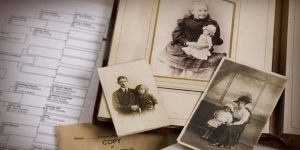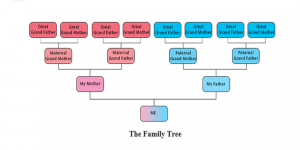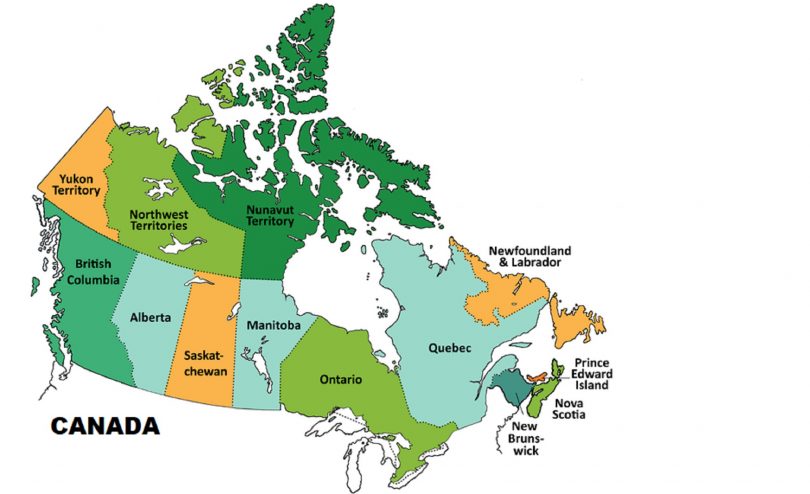Table of Contents
If you have Canadian ancestry and are considering exploring your genealogy, this guide is for you.
The main part of researching your Canadian heritage is gathering crucial information that’ll accurately lead you to a common ancestor and where they lived. However, there is a wide array of resources to look at, and they are all kept in different places. Some are kept in the province, others in towns and counties.
You also need to understand that Canada was a Great Britain and France colony, meaning that you might come across records written in a foreign language.
It would also be advisable to check whether your ancestors migrated from another country and, if so, determine their original place of origin.
Sure, the process may be intricate, but luckily, available resources can help you learn more about your Canadian genealogy. This guide takes you through the steps and resources guaranteeing successful Canadian genealogy research.
Key Takeaways
- Researching your Canadian ancestry should start with the people you know, including uncles, parents, grandparents, aunts, etc.
- Next would be searching for information from civil and church records in your current country of residence and Canada.
- The process sounds easy in theory, but piling up the paperwork and dealing with all the bureaucracy can be a hassle. This is the point where you need a professional genealogist.
RELATED:
How To Start Your Genealogy Research From Scratch
Start Your Canadian Ancestry Research

Old photos are crucial when starting your genealogy research
Researching your Canadian ancestry should start with the people you know, including uncles, parents, grandparents, aunts, etc. Reach out to family members, especially the older ones, and inquire about your origin, ancestors, and other relatives you might never know.
In addition to family structure and full names of these ancestors, find specific dates for special events like birth and marriage. Be sure also to gather information on the ancestors’ occupation, place of residence, religious affiliation, etc.
With all this information recorded on family group sheets and trees, you can move to the next phase of researching your Canadian genealogy.
Next would be searching for information from civil and church records in your current country of residence and Canada. For example, the National Archives and the General Registrar‘s office in the US keep all the birth and census records. The Canadian version of the Archives and Registrar is the Library and Archives Canada.
Luckily, this Canadian recordkeeper has a designated center for all your historical and genealogy records called the Canadian Genealogy Centre, which is vital for discovering your Canadian roots.
Access the Canadian Genealogy Centre for all your records, or visit the third floor of Library and Archives Canada at 395 Wellington Street, Ottawa, Ontario. It would help if you already had specific research objectives. The site’s consultants will be ready to assist you with questions about your genealogy and direct you to the appropriate database.
How To Access Library and Archives for Canadian Ancestry

Genealogy Research
Visiting the Canadian Genealogy Centre online or physically is one thing while retrieving that crucial document with your ancestors’ records is another. Also, the consultants can direct you to other institutions or government departments for the appropriate records.
If you’re lucky to trace the records to the genealogy center, apply any of the means discussed below to retrieve them for personal use.
-
Borrow the Material
Many published or archived records are already microfilmed. However, the published records and microfilm reels may be borrowed by an established institution like a resource center, archives, and libraries in or out of Canada. You may request your learning institution or parish to borrow the record on your behalf through loan request submissions.
-
Order Document Copies
You can request photocopies if you’ve identified the specific document or page possibly detailing your ancestor’s information. Be sure to cite the reference you need and send a receipt with the request.
-
Hire a Genealogist for Canadian Ancestry

Genealogists are bound by the law
A professional genealogist comes in handy when you need more time or resources to visit the Library and Archives Canada or find specific material of interest. Genealogists operating in the US or Canada can help you quickly retract relevant records for your genealogy.
It’s also worth noting that while the consultants at the Canadian Genealogy Centre may answer all your questions and provide the necessary guidance, they don’t complete family trees for you. Therefore, a professional genealogist can do the hard work and allow you the time to engage in other vital matters in your life as your genealogy takes shape.
It would be a hassle commuting to all the archives from Ontario to Toronto, tracing your grandparents who lived back in the mid-19th century. Instead, a comprehensive genealogy would identify even closer relatives who would better guide your lineage in Canada.
RELATED:
How To Conduct A Successful Family Tree Research

Family Tree
Tracking your Canadian ancestor may involve detailing the full names of every person connected to you. The family tree has proven most effective in expanding your family details with you as the root. Download free family tree samples and make family research a study and a fun activity in your living room. Every space in the family tree should include the person’s full name, special dates like birth and death, and other relevant information.
The process sounds easy in theory, but piling up the paperwork and dealing with all the bureaucracy can be a hassle. This is the point where you need a professional genealogist.
A genealogist specializes in the descents of persons and knows the checkmarks of finding a specific ancestor. Record Click Professional Genealogists will expedite the process of unearthing personal information and help you understand the historical contexts. Only a professional genealogist can perfectly navigate the national library and quickly track your story. They also come in handy when you want to ensure you get everything right during the Canadian citizenship application by descent.
However, contacting your state’s consulate general office is advisable for directions on the application process, especially regarding descent, application fee, and duration. Of course, the first step in the citizenship application process starts by visiting the state’s consulate with your genealogy information and records.
Discover Your Canadian Heritage
If you have Canadian heritage and are concerned about crossing the border for information, we can help you narrow down the options and quickly determine your ancestors and their origin. Contact us and share with genealogy experts about which project fits your needs.
READ MORE:Genealogy DNA Surprises: How To Deal With Unexpected Results







